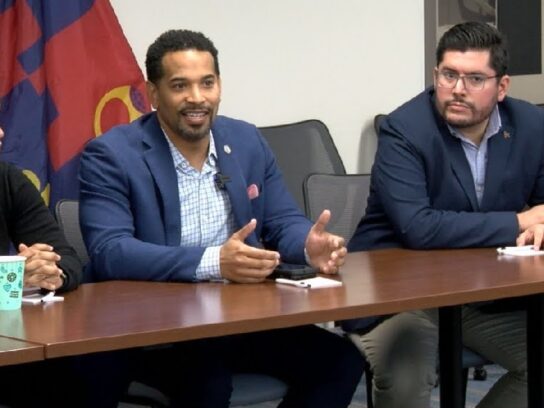
Montgomery County Councilmember Will Jawando has been pushing for a bill that would change the way tipped workers are compensated, enabling workers to be paid minimum wage without including their tips.
But he has asked that his bill be pulled so that he, along with other county officials from across the state, could work together for a statewide law.
On Monday, Jawando told MCM he “absolutely” still wants to see such a law enacted. But he has changed his focus toward a statewide coordinated action. He, along with other regional partners, want Gov. Wes Moore and the General Assembly to take up the cause.
During Tuesday’s council meeting, Jawando expects his bill, which only was cosponsored by Councilmember Kristin Mink, to be pulled.
Previously, Jawando had said, “No one should have to go hungry or miss rent because they had a bad night in tips. It’s unconscionable.”
Currently, an employer calculates a worker’s minimum wage by including a tip credit, which represents the amount of the minimum wage a worker is expected to get in tips. That credit is the hourly minimum wage minus $4 or less.
If a worker receives smaller tips than usual, the result is subminimal pay, Jawando said. “Subminimal wage is rooted in racial injustice,” affecting women and people of color the hardest, he noted when he first introduced the bill.
Jawando had faced opposition on his bill from some of his fellow councilmembers as well as the Restaurant Association of Maryland.
Another bill expected to be pulled Tuesday would have created a wage commission to study and make recommendations regarding minimum wages, benefits and working conditions by industry in the county.
“The Restaurant Association of Maryland applauds the withdrawal of legislation that would have phased out the tip credit in Montgomery County,” it noted in a news release.
If passed, the restaurant association predicted that servers and bartenders’ earning would “significantly decrease,” because restaurants would end up imposing service charges to help cover the need to pay workers more.
“Customers are unlikely to tip on top of the service chargers,” the association noted in a news release. Also, the association noted, “There would be no incentive for servers to provide the best possible customer service if they were no longer rewarded with tips.”
This is what is happening in D.C., according to the association’s news release.
“The Restaurant Association of Maryland will continue to oppose state and local legislation that would eliminate or reduce the tip credit because of the negative consequences it would have on tipped employee earnings, restaurant operators, and customers,” according to the news release.
In 2014, 2015, 2017, 2019 and 2023, the Maryland General Assembly considered legislation that would have phased out the tip credit statewide, but it never passed due to opposition from tipped employees and restaurant operators, according to the restaurant association.


Comments are closed.